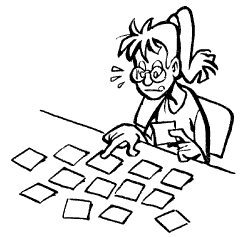 Memory is a fascinating thing. Our memories are a huge part of making us who we are, and yet it’s surprisingly easy to implant false memories. And you don’t have to enter people’s dreams or give them drugs to do it. All you need to do is be moderately suggestive.
Memory is a fascinating thing. Our memories are a huge part of making us who we are, and yet it’s surprisingly easy to implant false memories. And you don’t have to enter people’s dreams or give them drugs to do it. All you need to do is be moderately suggestive.People with this kind of memory don’t remember everything better than mere mortals. If you give them a list of unrelated words to memorize, they do no better than anyone else. They just remember the details of their own lives with amazing precision. They can recall the day of the week and the events of any day in their lives with 97% accuracy for details that can be independently verified. Meanwhile, I can’t remember what I had for dinner two nights ago.
Clearly, even people with remarkable memories are not immune to memory distortions. They’re no better in the jury box than anyone else.
No comments:
Post a Comment